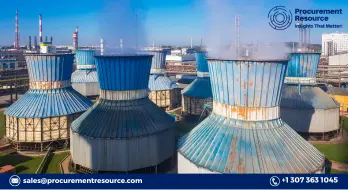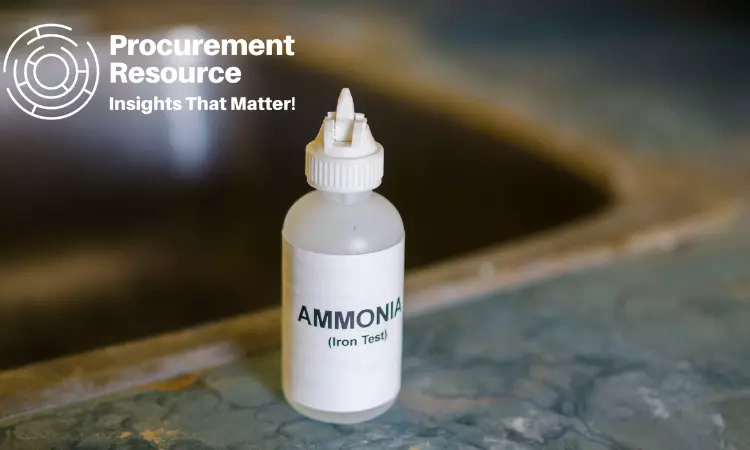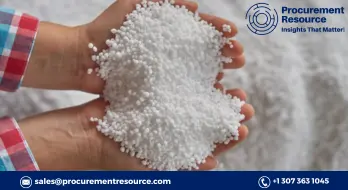The First Officially Recognized Low-Carbon Ammonia Shipment From Saudi Arabia Has Been Sent To Japan
.webp)
Saudi Arabia Shipped Its First Accredited Shipment Of Low-Carbon Ammonia To Japan
Aramco, the Saudi Arabian company, verified that the company successfully delivered its first accredited low-carbon ammonia shipment to Japan on 20 April.
SABIC Agri-Nutrients produced ammonia with Aramco supplying the feedstock and was sold by Aramco Trading Company to Fuji Oil Company.
The shipment was delivered by Mitsui O.S.K. Lines to the Sodegaura refinery for being employed in co-fired power generation.
This ammonia received the label of low carbon because of the CO2, which was captured from the related manufacturing process and then employed in end-user applications, as per Aramco.
Japan is aiming to reach a hydrogen economy of 3 million tonnes annually by 2030 and 20 million tonnes per year by 2050, as per the hydrogen strategy of the country.
The nation will strive to generate domestic hydrogen using renewable sources; however, it will rely on foreign imports.
Saudi Arabia aims to become a major hydrogen and hydrogen carrier (like ammonia) exporter and targets a production rate of 2.9 million tonnes yearly by 2030 and 4 million tonnes yearly by 2035.
Request Access For the Latest Price Trends of Ammonia
Low carbon and renewable ammonia exports will likely grow in volume in the approaching years as nations start importing hydrogen and hydrogen carriers from other countries worldwide with the aim of achieving their decarbonisation targets.
The European Union (EU) targets to import 10 million tonnes of hydrogen yearly by 2030, especially in northwest Europe (Belgium, Germany, and the Netherlands).
Furthermore, G7 countries (France, Italy, Japan, Canada, Germany, the UK, the US, and the EU) in a press release stated that over the weekend, they would work on their efforts to develop a rule-based, transparent market and supply chain worldwide for low carbon and renewable hydrogen and its derivatives.
Hydrogen As A Future Fuel:
Hydrogen can be made using various domestic resources like natural gas, coal, solar energy, wind, and biomass for being used as a fuel that generates near-zero greenhouse gas emissions. After being produced, hydrogen can be used to make electrical power in a fuel cell but only emits water vapour and warm air.
It is a potential fuel that offers a promise for the advancement of the stationary and transportation energy sectors. It can help support national energy security, save fuel, and diversify transportation energy alternatives for a better and more resilient system.
Gasoline and diesel vehicles release emissions like hydrocarbons, nitrogen oxides, and particulate matter, which are the main pollution source. Fuel cell electric vehicles are powered by hydrogen that does not generate these harmful substances but only water and warm air cutting greenhouse gas emissions.
Read More About Ammonia Production Cost Reports - Get Free Sample Copy in PDF
Hydrogen's energy content has a low volume which makes it difficult to store as conditions like high pressures, low temperatures, or chemical processes are required for its compact storage. This challenge needs to be tackled for light-duty vehicles since they usually have a limited size and weight capacity for fuel storage.
The typical hydrogen storage capacity in light-duty vehicles could allow a driving range of over 300 miles to fulfil consumer needs. As hydrogen has a lower volumetric energy density compared to gasoline, the storage of this amount of hydrogen on a vehicle presently demands a huge tank at elevated pressure compared to other gaseous fuels.
Other benefits of hydrogen's usage as a fuel include better energy security that lowers the reliance on foreign imports; improved energy efficiency compared to petrol; zero-emission generation making it eco-friendly; can be used in transport fuel, oil refining and industrial applications.
According to the article by Procurement Resource, Saudi Arabia has successfully Shipped Its First Accredited Shipment Of Low-Carbon Ammonia To Japan. SABIC Agri-Nutrients generated ammonia with Aramco delivering the feedstock Aramco Trading Company selling it to Fuji Oil Company. Mitsui O.S.K. Lines shipped the delivery to the Sodegaura refinery for being employed in co-fired power generation. The shipment will help Japan achieve a hydrogen economy of 3 million tonnes annually by 2030 and 20 million tonnes per year by 2050, as per the hydrogen strategy of the country. This hydrogen offers the country great potential to be used as a fuel.




